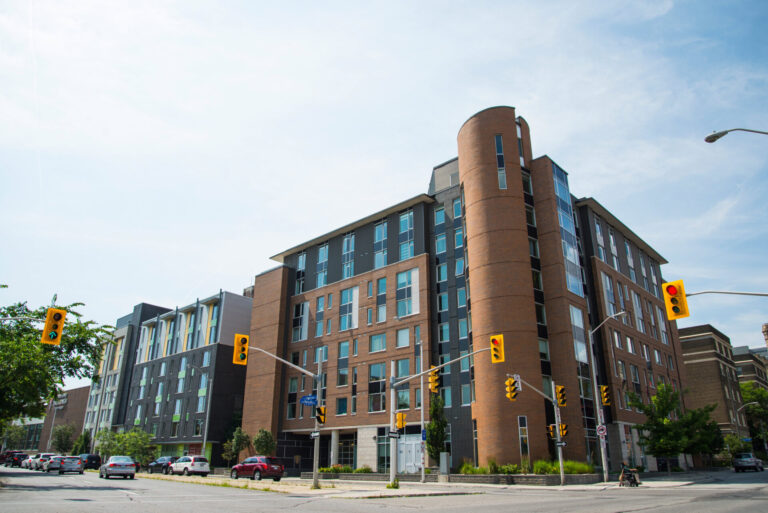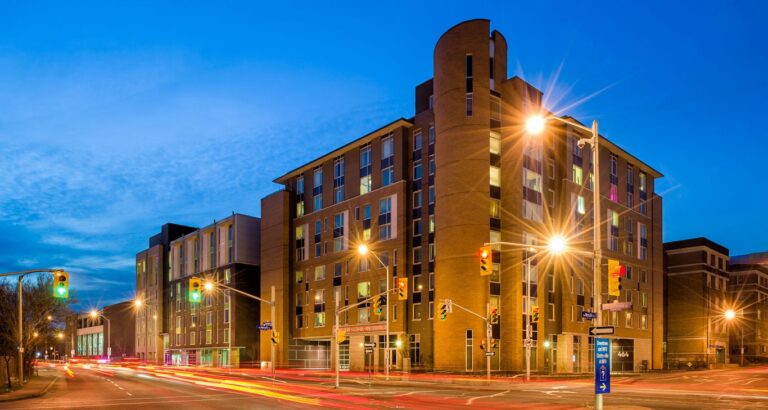Beaver Barracks
101 Catherine Street, Ottawa, Ontario
Type: New construction
Size: 71,700 sf (paramedic development only)
Project Cost: $65 million (entire project)
Development Partners:
- City of Ottawa
- The Centretown Citizens Ottawa Corporation (CCOC)
Status: Opened in 2012
Description
The LEED certified mixed-use building at 101 Catherine Street integrates a paramedic post into the base of 72 affordable housing units. It is one of five affordable housing buildings built around a community garden and public art installation. The full master-planned development, known as the Beaver Barracks Development, contains a total of 254 affordable units.


Land
The former military Beaver Barracks site was acquired by the City through a land swap with the Department of National Defense and the National Capital Commission during the 1990s. The site was intended to be repurposed for social housing but affordable housing funding cuts in the mid-1990s left the City without any immediate plans for the site. As a result, a stand-alone paramedic post was approved and built in 2004 as the site was strategically positioned to fill a gap in paramedic services.
When the final agreement between the City and the Centretown Citizens Ottawa Corporation (CCOC) was made in 2007, the subject site was sold to the non-profit for $1. It was estimated to have a market value of $5.3M.
User Interaction/Partnership Framework
An agreement was entered with the Centretown Citizens Ottawa Corporation (CCOC), a non-profit and successful proponent of an RFP issued in 2007. The RFP called for the redevelopment the subject site, also known as the Beaver Barracks site, to incorporate affordable housing. In exchange for the provision of land, confirmed capital funding, and a number of fee exemptions, CCOC built 254 units of affordable housing, a community garden, and a replacement ambulance station.
Costs / Funding
To fund the Beaver Barracks project, the CCOC used various social financing strategies, including government grants, loans, credits and rebates, and internal financing. $19M was received in combined federal and provincial funding as part of the Canada-Ontario Affordable Housing Program and $12M was received from grants and other contributions from the City of Ottawa. Through debenture agreements, $31M was also secured with Infrastructure Ontario. Special arrangements were also arranged with a religious organization, where CCOC was able to secure $1.5M in low-cost mortgage financing at 2% per year. The remaining financing of $2.24M came through an internal loan mechanism by CCOC.
In addition, the design charette in the early phases of the project revealed that initial energy saving features proposed did not have the desired performance impact. As a result, CCOC negotiated a 25-year agreement with a geothermal provider, who became a third-party owner of the geothermal system to offset the financing and servicing costs.
Questions?
If you’d like more details on our case studies, please contact us at infrastructure@utoronto.ca